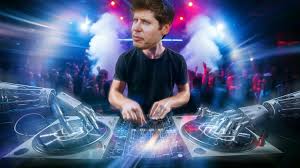
Compose Music with AI: OpenAI's New Tool
OpenAI is on the brink of launching an innovative artificial intelligence tool that will allow users to compose music using simple text or audio prompts. This tool aims to democratize music creation, enabling anyone—from novice musicians to professional composers—to craft complete tracks that include vocals, instrumentals, and more. This development could significantly impact the music scene in India, where diverse musical expressions thrive.
To ensure high-quality music generation, OpenAI is collaborating with students from the prestigious Juilliard School. These students are helping annotate music scores, which will aid in training the AI model with rich, accurate data. As a result, users might be able to perform tasks such as adding guitar accompaniments to their vocal recordings or composing background scores for various multimedia projects.
This initiative is part of OpenAI's broader strategy to expand its offerings beyond its popular ChatGPT, which has over 800 million users worldwide. By venturing into music production, OpenAI is tapping into a growing market that includes advertisers looking for catchy jingles and content creators needing original soundtracks. The potential applications of this tool are vast and could cater to a wide array of users in India, from school projects to professional film scores.
OpenAI is not alone in this endeavor; competitors like Google have already introduced AI music models, such as Lyria. OpenAI has previous experience in this domain with tools like MuseNet and Jukebox, which were developed in earlier years but haven't been integrated into ChatGPT. The renewed emphasis on music generation follows the success of OpenAI's video-generation app, Sora, which quickly garnered over a million downloads, highlighting the increasing demand for AI-driven creative tools.
If successfully launched, this upcoming music tool from OpenAI could simplify the music production process for a diverse range of users in India. Musicians, educators, and students could leverage this technology to explore new methods of composition and production, eliminating the need for traditional instruments or complex software. The future of music creation may be more accessible than ever before, thanks to advancements in AI.
Meanwhile, developments from Sora's head, Bill Peebles, indicate that new features will soon be added to the video platform, such as options for generating character cameos and a user-friendly interface that showcases trending creations. These advancements reflect OpenAI's commitment to fostering creativity through artificial intelligence, ensuring that users have the tools they need to express themselves artistically.









